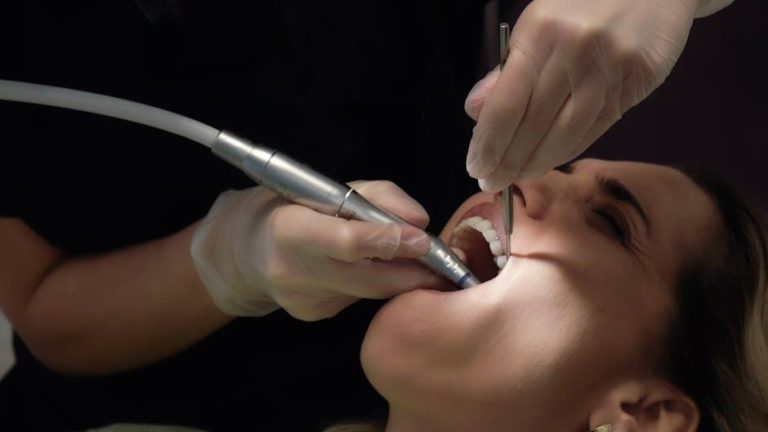
Is Enrolling in Dental Insurance Worth the Cost?
Dental health is an essential part of overall wellness, but many people struggle with whether dental insurance is a smart financial decision. If you’re weighing the costs and benefits of dental insurance, you’re not alone. In this article, we’ll dive deep into the pros and cons of enrolling in dental insurance plans, helping you determine if investing in dental coverage is truly worth it for your unique situation.
Understanding Dental Insurance: What Does It Cover?
Before deciding if dental insurance is a good investment, it’s crucial to understand what dental insurance actually covers.
- Preventive Care: Most plans cover routine cleanings, exams, and X-rays at 100%, encouraging regular dental visits.
- Basic Procedures: Fillings, extractions, and periodontal care are often partially covered.
- Major Procedures: Crowns, bridges, dentures, and sometimes orthodontics may be covered at a lower percentage and often have waiting periods.
The nature of your dental insurance benefits directly affects whether the plan gives you value for your money.
The True Cost of Dental Insurance
When evaluating if dental insurance is worth the cost, consider these key factors:
- Monthly Premiums: These vary widely based on the provider, location, and coverage level.
- Deductibles: This is the amount you pay out of pocket before coverage begins.
- Co-payments and Coinsurance: You’ll often be responsible for part of the treatment cost even after meeting deductibles.
- Annual Maximums: Many plans set an annual spending limit, often between $1,000 to $2,000.
- Waiting Periods: Certain procedures might require you to wait months before benefits kick in.
It’s important to do the math and consider how much you realistically expect to spend on dental care annually.
Cost Comparison Table
| Expense Category | With Dental Insurance | Without Dental Insurance |
|---|---|---|
| Monthly Premiums | $20 – $50 | $0 |
| Annual Deductible | $50 – $150 | $0 |
| Preventive Care (cleanings) | Usually free | $75 – $200 |
| Filling (one surface) | 20%-40% of cost | $150 – $300 |
| Crown | 50%-60% of cost | $800 – $1,500 |
| Annual Maximum Limit | $1,000 – $2,000 | Unlimited (self-pay) |
Benefits of Enrolling in Dental Insurance
There are many advantages to having dental insurance that make it worth considering for many people:
- Encourages Regular Care: Insurance incentivizes visits to the dentist, helping catch issues early.
- Lower Out-of-Pocket Costs: Helps reduce hefty costs for major dental work.
- Peace of Mind: Knowing that unexpected dental procedures won’t drain your finances.
- Network Savings: Insurance providers often negotiate discounted rates with dentists.
- Supports Overall Health: Dental insurance helps maintain proper oral health which is linked to heart and systemic health.
Who Should Consider Dental Insurance?
Dental insurance isn’t a one-size-fits-all solution. It’s most valuable for:
- Families: Kids usually require multiple visits and treatments such as braces or sealants.
- Individuals prone to dental issues: If you have a history of cavities, gum disease, or need frequent dental work.
- Those wanting routine preventive care: Regular cleanings and exams can save money over time with insurance.
- Seniors: As dental needs increase with age, insurance can help manage costs of prosthetics or implants.
When Dental Insurance May Not Be Worth It
If you’re young, have excellent oral health, and only need annual preventive care, you may find that paying out-of-pocket can be cheaper than premiums and deductibles combined.
Practical Tips for Maximizing Dental Insurance Value
To get the most out of your dental insurance investment, consider these tips:
- Understand Your Plan: Know your coverage limits, waiting periods, and exclusions upfront.
- Use Preventive Benefits Regularly: Schedule cleanings and checkups every six months to avoid costly problems.
- Choose In-Network Dentists: Maximize savings by using dentists who accept your plan.
- Plan Big Procedures Strategically: Since plans have annual maximums, coordinate timing of expensive treatments.
- Supplement With a Dental Savings Plan: Consider alternative plans if traditional insurance premiums are too high.
Case Study: Is Dental Insurance Worth It for a Family of Four?
Let’s review a simplified example to see the impact:
| Category | With Insurance | Without Insurance |
|---|---|---|
| Annual Premiums | $1,200 | $0 |
| Preventive Care (4 cleanings) | Free | $600 |
| Two Fillings | $150 (30% coinsurance) | $600 |
| One Crown | $600 (40% coinsurance) | $1,500 |
| Total Cost | $1,950 | $2,700 |
In this scenario, dental insurance saves the family approximately $750 per year, not including peace of mind and budgeting predictability.
Final Thoughts: Making the Right Choice for Your Teeth and Wallet
Enrolling in dental insurance can offer significant financial protection and encourage better oral health habits. However, it isn’t always worth the cost if your dental care needs are minimal and predictable. Evaluate your personal oral health, financial situation, and tolerance for risk to decide if dental insurance is right for you.
Remember, the best dental insurance plan is one that aligns with your health needs and provides good value without unnecessary expenses.
For more tips on retirement, health, and financial planning, visit MyFederalRetirement.com.


